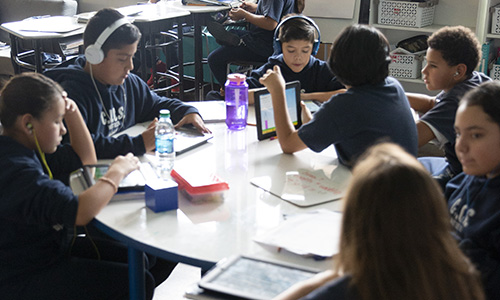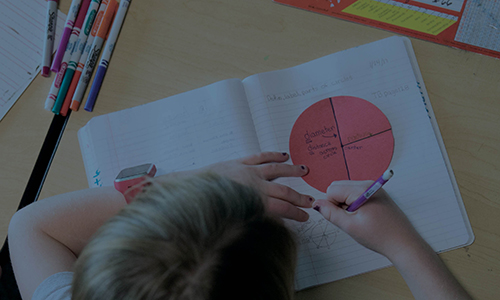Equity
It remains a critical challenge to ensure all children—regardless of race, ethnicity, gender, socio-economic status, and/or ability—have access to a high-quality education. We are at a pivotal time where communities and schools are navigating issues of equity, poverty, and opportunity gaps against a backdrop of shifting education policy. With access to exceptional data and a multi-disciplinary team of researchers and research partners, we are able to provide unique insight into these important issues.


The MAP Growth theory of action describes key features of MAP Growth and its position in a comprehensive assessment system.
By: Patrick Meyer, Michael Dahlin
Products: MAP Growth
Topics: Equity, Measurement & scaling, Test design


What do teachers know about dyslexia? It’s complicated!
The purpose of this study was to examine the concepts of dyslexia teachers know accurately as scientific conceptions, hold as misconceptions, or are uncertain. Implications for teacher training in dyslexia are discussed.
By: Erin K. Washburn, Benjamin C. Heddy, Emily Binks-Cantrell, Tiffany Peltier
Topics: Equity, Reading & language arts


Achievement and growth for English Learners
This study reports achievement and growth from kindergarten to 4th grade for three groups of English Learners. The findings suggest summer support is required to help ELs maintain and develop academic skills.
By: Angela Johnson
Topics: Equity, English Language Learners, Seasonal learning patterns & summer loss


Equitable learning recovery must be grounded in solid research
The COVID-19 pandemic, coupled with political and social unrest, has deeply disrupted the lives and learning experiences of most students. It has created an urgent need to address long-standing opportunity gaps and has highlighted the importance of providing resources that support student achievement, social-emotional learning, and physical and mental well-being. This urgency for action to address the impacts is valid, but it has also created a noisy environment of potential options of what might be best for students. It’s critical, now more than ever, for decisions to be grounded in solid research.
By: Beth Tarasawa
Topics: COVID-19 & schools, Equity


Supporting students with disabilities throughout the year
Students with disabilities lose even more ground than peers during summer and other interruptions in their learning—but they don’t need to. Data point to a need for services that extend beyond the school year.
By: Elizabeth Barker, Angela Johnson


To what extent has the COVID-19 pandemic affected student achievement and growth in reading and math, and which students have been most affected? Using data from 6 million students in grades 3-8 who took MAP Growth assessments in reading and math, this brief examines how gains across the pandemic (fall 2019 to fall 2021) and student achievement in fall 2021 compare to pre-pandemic trends. This research provides insight to leaders working to support recovery.
By: Karyn Lewis, Megan Kuhfeld
Topics: COVID-19 & schools, Equity, Growth modeling


The purpose of this technical appendix is to share more detailed results and to describe more fully the sample and methods used in the research included in the brief, Learning during COVID-19: An update on student achievement and growth at the start of the 2021-22 school year. We investigated two research questions:
- How does student achievement in fall 2021 compare to pre-pandemic levels (namely fall 2019)?
- How did academic gains between fall 2019 and fall 2021 compare to normative growth expectations?
By: Megan Kuhfeld, Karyn Lewis
Topics: COVID-19 & schools, Equity, Growth modeling


